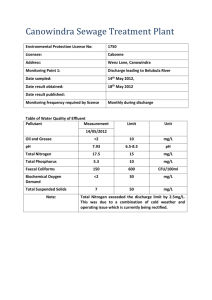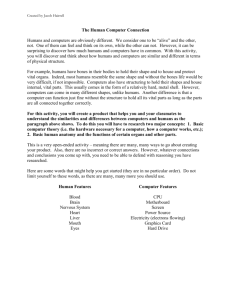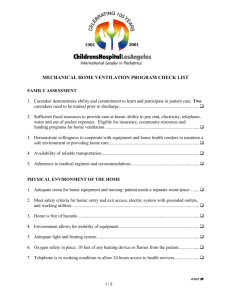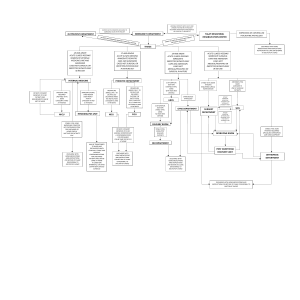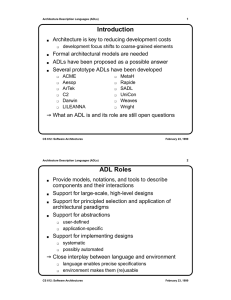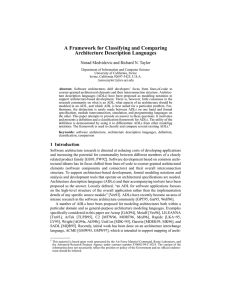Nursing Diagnosis Nursing Intervention/s and tasks Activity intolerance
advertisement
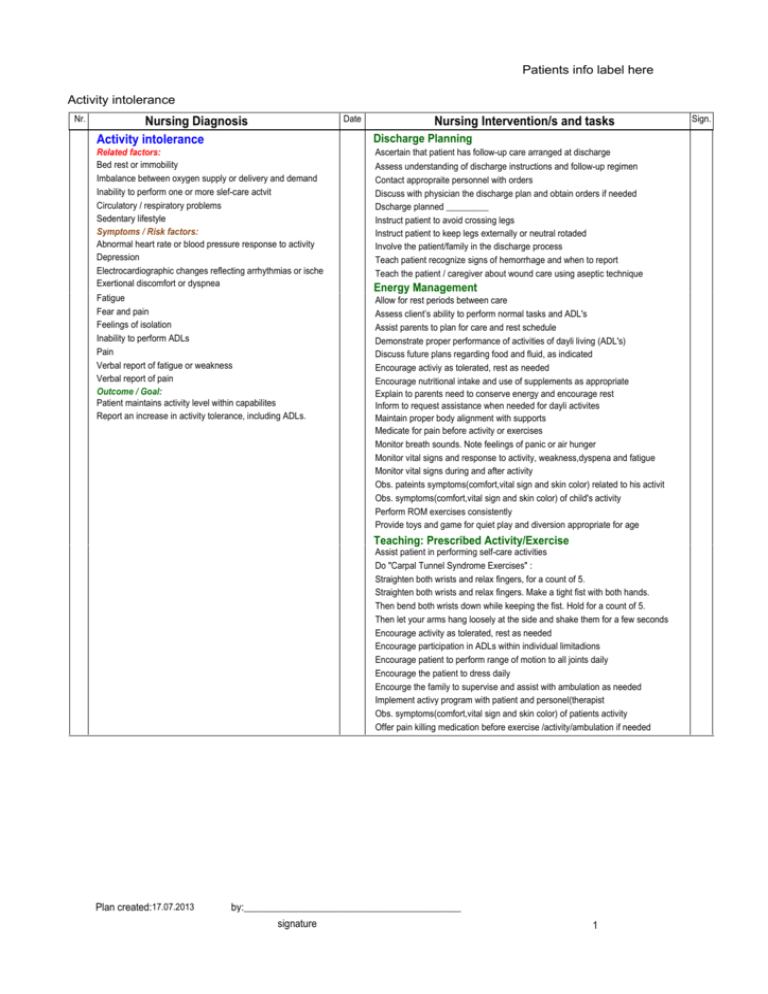
Patients info label here Activity intolerance Nr. Nursing Diagnosis Activity intolerance Date Related factors: Bed rest or immobility Imbalance between oxygen supply or delivery and demand Inability to perform one or more slef-care actvit Circulatory / respiratory problems Sedentary lifestyle Symptoms / Risk factors: Abnormal heart rate or blood pressure response to activity Depression Electrocardiographic changes reflecting arrhythmias or ische Exertional discomfort or dyspnea Fatigue Fear and pain Feelings of isolation Inability to perform ADLs Pain Verbal report of fatigue or weakness Verbal report of pain Outcome / Goal: Patient maintains activity level within capabilites Report an increase in activity tolerance, including ADLs. Nursing Intervention/s and tasks Discharge Planning Ascertain that patient has follow-up care arranged at discharge Assess understanding of discharge instructions and follow-up regimen Contact appropraite personnel with orders Discuss with physician the discharge plan and obtain orders if needed Dscharge planned _________ Instruct patient to avoid crossing legs Instruct patient to keep legs externally or neutral rotaded Involve the patient/family in the discharge process Teach patient recognize signs of hemorrhage and when to report Teach the patient / caregiver about wound care using aseptic technique Energy Management Allow for rest periods between care Assess client’s ability to perform normal tasks and ADL's Assist parents to plan for care and rest schedule Demonstrate proper performance of activities of dayli living (ADL's) Discuss future plans regarding food and fluid, as indicated Encourage activiy as tolerated, rest as needed Encourage nutritional intake and use of supplements as appropriate Explain to parents need to conserve energy and encourage rest Inform to request assistance when needed for dayli activites Maintain proper body alignment with supports Medicate for pain before activity or exercises Monitor breath sounds. Note feelings of panic or air hunger Monitor vital signs and response to activity, weakness,dyspena and fatigue Monitor vital signs during and after activity Obs. pateints symptoms(comfort,vital sign and skin color) related to his activit Obs. symptoms(comfort,vital sign and skin color) of child's activity Perform ROM exercises consistently Provide toys and game for quiet play and diversion appropriate for age Teaching: Prescribed Activity/Exercise Assist patient in performing self-care activities Do "Carpal Tunnel Syndrome Exercises" : Straighten both wrists and relax fingers, for a count of 5. Straighten both wrists and relax fingers. Make a tight fist with both hands. Then bend both wrists down while keeping the fist. Hold for a count of 5. Then let your arms hang loosely at the side and shake them for a few seconds Encourage activity as tolerated, rest as needed Encourage participation in ADLs within individual limitadions Encourage patient to perform range of motion to all joints daily Encourage the patient to dress daily Encourge the family to supervise and assist with ambulation as needed Implement activy program with patient and personel(therapist Obs. symptoms(comfort,vital sign and skin color) of patients activity Offer pain killing medication before exercise /activity/ambulation if needed Plan created:17.07.2013 by:_________________________________________ signature 1 Sign.

